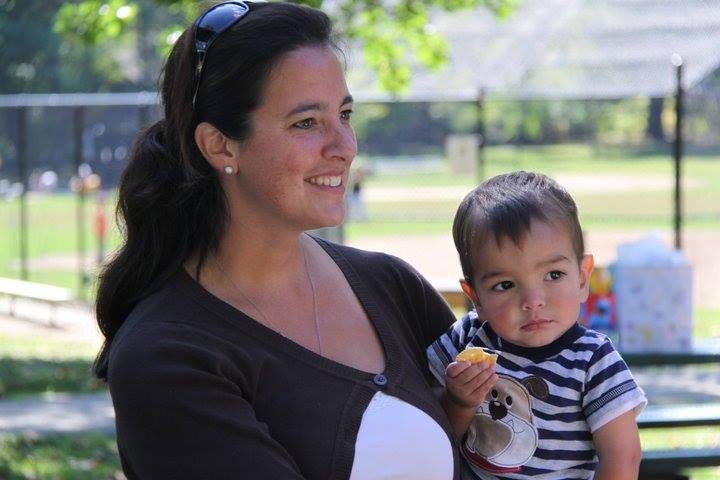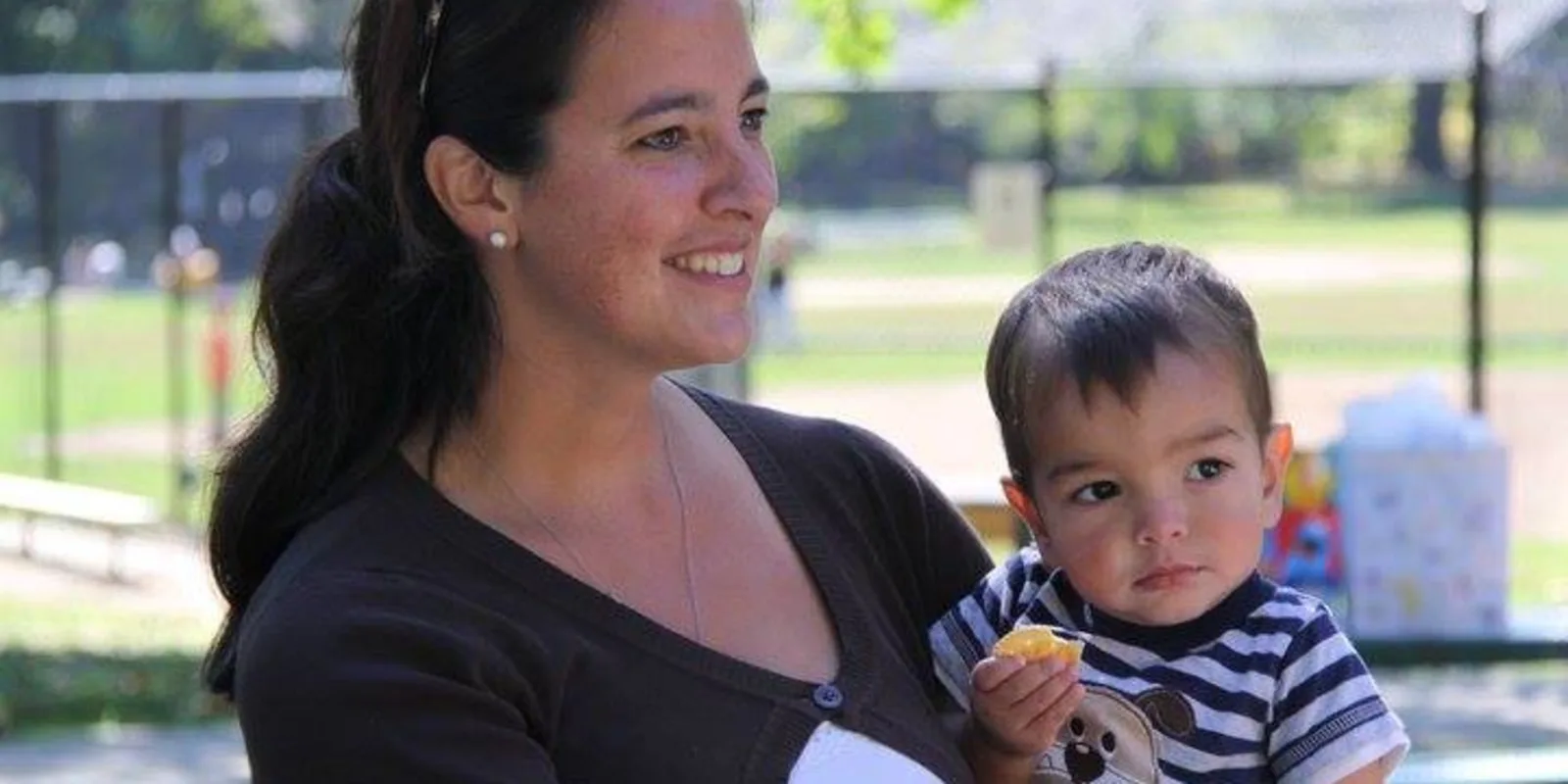
I am writing this message to you directly, because I know that you are the most powerful agents for positive change in your specialty — where the leaders of your field are calcified into a dangerous status quo.
I write because I know you are far more powerful than you may believe yourselves to be in the hierarchy of your medical education and residency programs.
And I write on behalf of my wife, Dr. Amy Josephine Reed and all women across the nation and world.
Many of you know Amy’s story and how her campaign against the practice of morcellation in gynecology almost single-handedly changed your specialty’s practice pattern. In case you do not know her, please read here, here and here for the background. There is much that is accessible in the press and public domain about her public health fight.
Amy died of a catastrophic iatrogenic abdominal sarcomatosis, caused by a gynecological power morcellator. Like all the other women before her, for well over 20 years, her occult uterine sarcoma was assumed to be a benign fibroid — and morcellation spread the deadly cancer in her abdomino-pelvic cavity, making far more definitively deadly.

She spent the last 40 days of her life in the surgical ICU at the Hospital of the University of Pennsylvania (HUP)— being cared for her by the very friends and colleagues who she had trained and worked with. But, in the end, the abdominal sarcoma created by the morcellation she underwent at the Brigham and Women’s Hospital in Boston caused an unresectable sarocmatosis — obstructing her kidneys, blocking her bowels and invading her major abdominal and lower extremity vessels. I watched as her heart beat for the last time.
She was not alone in this horrific iatrogenic death — somewhere in the range of one in 300–500 women had been exposed to this cancer mortality risk by your specialty for well over 2 decades. And many hundreds of these harmed women and their families communicated with Amy and I in hopes of finding a way out and to prevent others from the same fate.
I hope you will take the time to understand why this risk is not ethically acceptable in our profession. Amy and I wrote our perspective on the ethics of morcellation in her last week of life, as she lay dying at HUP. Please read it here.
In a nutshell, morcellation of tumors with malignant potential, especially when there is no definitive way to rule out a malignancy in a uterine tumor, is a major violation of a core surgical principle all surgeons, except GYNs, respect. Additionally, the idea that “majority benefit” and “patient consent” can override the ethical precepts of “non-maleficence” and “justice” for the individual patient is not tenable.
This brings me to the root cause of why your specialty has accepted this practice as being correct and safe, when the vast majority of surgeons observing your practice pattern know it to be radically unsafe. And this is where every one of you must rise up to bring about a necessary change.
It is an unfortunate reality that GYN surgery is practiced in a cloistered silo away from cross-disciplinary discourse and input from other surgeons. I know that many of my colleagues and I in general and thoracic surgery, and other surgical subspecialties, heard about “power morcellation” for the first time after Amy had been harmed. This is an astonishing fact! And it demonstrates how far away from other surgeons, especially those who operate in the abdomen, GYNs have strayed.
Unfortunately, your specialty’s silo-ed culture begins right where you are — in residency. I ask you to carefully think about why this “silo-ing” happens and what it does to your surgical education and technical capacities. I recognize that it is difficult to be criticized — we physicians have a tremendously hard time changing. But, change, you must and you can — for the sake of the patients you will care for and for the sake of your own professional integrity.
Ask yourselves, “why is gynecology the only surgical subspecialty that does not cross-train with general surgeons?” Even plastic surgeons, who rarely delve into the abdomen and pelvis as deeply as GYNs do with a knife, do a minimum of 3 years of cross-training on general surgical services. Here’s the typical clinical rotation schedule of a plastic surgery resident in the accelerated “integrated path”.
But why don’t your programs require you to do a similar minimum training in general surgery? And what is the cost of this omission to your own technical potential as surgeons and to your patients?
I want to be crystal clear on what many outsiders see but, politically, cannot express: you are being educated in an insufficiently well-rounded surgical environment — and irrespective of your beneficent intent, the lack of a broad based surgical training will created problems for yourselves and, more importantly, your patients.
The truth is, that most surgeons recognize the technical limitations of the average GYN, but most stand on professional decorum and do not overstep political lines. Here and there, one hears about a general surgeon engaging in an argument or skirmish with a GYN for something that is clearly suboptimal — or a complication that should not have happened in a woman patient. But really, most stand on decorum and do not demand your specialty leaders to change their training paradigm to safety.
Unfortunately, after Amy’s death at the hands of a reckless gynecological process and two thoughtless, but well-decorated, gynecologists, I cannot remain silent on the root cause of her death — and many others’. I have written the American College of Surgeons a pointed open letter demanding a change, which you can read here. I ask that you read this carefully and with an open mind.
During the last few weeks of Amy’s life in the HUP ICU, one of the OB/Gyn interns was rotating on the covering ICU service. Her name was Dr. Elizabeth Rubin. She took extremely sensitive care of Amy in her capacity as the ICU intern — and I was grateful that she listened and looked without being defensive, as many others in OB/Gyn are when interacting with us. I suspect this was because Dr. Rubin was a resident and her opinions and ideas had not yet been terminally differentiated. She had an open mind. I had a chance to speak with Dr. Rubin in detail on multiple occasions about Amy’s clinical course and outcome. And Amy, despite her very grave condition at the time, was happy to know that an OB/Gyn intern was on the service. She told me, “it’ll be her generation that’ll see the problem clearly and solve it for other women. It’s an omen that she’s here now.” And, I know that it was — and that Dr. Rubin won’t forget what she saw.
I am writing this letter to you because you are at the beginning of your professional road and you are still capable of thinking outside the box, where your elders in the specialty are blinded — by virtue of politics, money or comfort.
But you all can ask you chairpersons and program directors, why it is that you do not train with other surgeons in a cross-disciplinary fashion — why it is that all other surgeons get a far more liberal surgical education than GYNs. Because, I assure you that morcellation is just the tip of a very large iceberg of technical problems where GYNs can learn from other surgeons — to bring balance and safety to the care of the women who rely on your professional acumen.
With this appeal, I ask that every one of you rise up and demand that your GYN training be more on par with other surgeons’ — especially with those who deal with the complex abdomino-pelvic environment. A GYN should get at least the same level of training in general surgery as a plastic surgeon gets.
I write with hope and respect for your power to bring about the change Gynecology needs — so that women, in trouble, are treated with the highest level of surgical proficiency and knowledge. Nothing less is acceptable — but your current GYN training scheme and the crop of GYN leaders in charge of your professional societies are falling very short.
This public appeal is made on behalf of Amy Josephine Reed MD, PhD, on behalf of all women fallen to gynecological morcellation, on behalf of all women with surgically manageable gynecological conditions_—_and by The American patient Defense Union.





